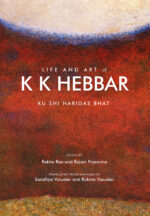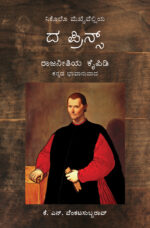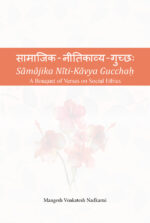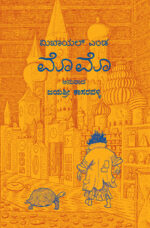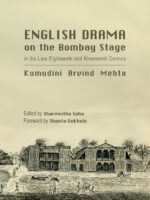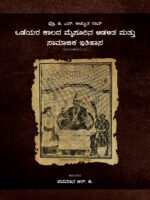Phedra
₹180.00
Translator: Madhava Chippalli
ರಾಸೀನ್ನ ಫೀದ್ರಾ ನಾಟಕವು ಪಾಶ್ಚಿಮಾತ್ಯ ನಾಟಕ ಸಾಹಿತ್ಯದಲ್ಲೇ ಒಂದು ಆಯಕಟ್ಟಿನ ಕೃತಿ. ಗ್ರೀಕ್ ಮತ್ತು ಎಲಿಜಬೆಥನ್ ನಾಟಕಗಳಲ್ಲಿ ಕಾಣಸಿಗದ ಹೊಸ ಬಗೆಯ ಮನೋಲೋಕವೊಂದನ್ನು ತನ್ನ ಪಾತ್ರಗಳಿಗೆ ಧಾರಣೆ ಮಾಡಿಸಿದ ಈ ನಾಟಕವು ಆ ಮೂಲಕವೇ ಈ ಪರಂಪರೆಯಲ್ಲಿ ಮನೋವಿಜ್ಞಾನಕ್ಕೆ ಒಂದು ಖಾಯಂ ಸ್ಥಾನವನ್ನು ಒದಗಿಸಿಕೊಟ್ಟಿತು. ಮುಂದೆ ಬಹುತೇಕ ಪಾಶ್ಚಿಮಾತ್ಯ ನಾಟಕಗಳು ಈ ಪರಂಪರೆಯನ್ನು ಮುಂದುವರಿಸಿದವು; ರಂಗಭೂಮಿಯಲ್ಲೂ ಮನೋಲೋಕವನ್ನು ಮುಂದಕ್ಕೆ ತರುವ ವಿಭಿನ್ನ ಪ್ರಯೋಗಗಳಿಗೆ ಈ ಪರಂಪರೆಯು ಚಾಲ್ತಿ ನೀಡಿತು. ಈ ಸಂಪ್ರದಾಯಕ್ಕೆ ವಿರೋಧಿಯಾದ ಫ್ರಾನ್ಸಿನ ಪ್ರಸಿದ್ಧ ರಂಗಕರ್ಮಿ ಆಂತೋನಿನ್ ಆರ್ತೋನ ಮಾತುಗಳನ್ನು ಕೇಳುವುದಾದರೆ, ಪಾಶ್ಚಿಮಾತ್ಯ ರಂಗಭೂಮಿಯಲ್ಲಿ ‘ಸೈಕಾಲಜಿಯ ದುರ್ಬೀಜ’ ಬಿತ್ತಿದ ಕೃತಿ ಇದು! ಹಾಗಿರುವುದರಿಂದ, ನಾವು ಈ ನಾಟಕವನ್ನು ಹೇಗೇ ಓದಲಿ, ಓದದೆ ಇದ್ದರೆ ಅಷ್ಟರ ಮಟ್ಟಿಗೆ ಪಾಶ್ಚಾತ್ಯ ನಾಟಕ ಸಂಪ್ರದಾಯದ ಅರಿವು ಅಪೂರ್ಣ. ಅಂಥ ಪ್ರಮುಖ ನಾಟಕವೊಂದು ಇನ್ನೂ ಕನ್ನಡಕ್ಕೆ ಬಾರದೆ ಉಳಿದಿತ್ತು; ಆ ಲೋಪವನ್ನು ಈ ಅನುವಾದವು ಸಮರ್ಥವಾಗಿಯೇ ತುಂಬಿಸಿದೆ. ಮೂಲದ ನಿಷ್ಠೆಯೊಂದಿಗೆ ಭಾಷಾಗಾಂಭೀರ್ಯ ಮತ್ತು ಮಾತಿನ ಸುಭಗತೆ ಎರಡನ್ನೂ ಒಟ್ಟಿಗೇ ಹಿಡಿಯಲು ಯತ್ನಿಸಿರುವ ಈ ಅನುವಾದವನ್ನು ನಾನು ತುಂಬು ಮನಸ್ಸಿನಿಂದ ಸ್ವಾಗತಿಸುತ್ತೇನೆ.
Interested readers may write to us at mup@manipal.edu about purchasing the book.
| Categories: | Kannada, Plays and Theatre, Texts in Translation |
|---|
| Format | |
|---|---|
| Author |
Related products
-
Life and Art of K K Hebbar
₹2,000.00Author: Haridas Bhat Editors: Rekha Rao, Rajani Prasanna Translators: Sandhya Vasudev, Rukma Vasudev
K K Hebbar was a trailblazer in Indian art. His contributions to modern Indian art as an artist, teacher, and art administrator are unparalleled. What is ‘Indian’ in modern Indian art has been a subject of discussion since the beginning of the modernist movement. Hebbar’s oeuvre is an answer to that question. It is modern and yet, intensely Indian, both in terms of subjects and treatment. Hebbar remained rooted in his native soil. His line drawings are a treasure of Indian art. No one has surpassed them in their delicacy and lyricism.
This biography is Mr Bhat’s affectionate account of his friend Hebbar’s life and art. The strength of Hebbar’s character comes through in his narration. Integrity and self-discipline were Hebbar’s defining qualities. Arguably, the man was greater than his work. And that makes his story intriguing. This biography of a major artist is a welcome addition to the meagre literature on Indian artists.
Interested customers may write to us at mup@manipal.edu about purchasing the book.
Also available on

-
Saga of The Uprooted
₹95.00Author: Ranga Hari, Translator: Saratchandra Shenoi
This English translation of Visthapanachi Katha, a Konkani Khanda Kavya, depicts the saga of the migration of the Konkani community from Goa to a land far away from home. This collection of poems encapsulates the reign of a colonial power over the region of Goa that began with the entry of the Portuguese in the 16th century. It illustrates the displacement of the Konkani people and their resurgence at Cochin port. The poems describe the transformation of Goa – both culturally and topographically – and the people of Goa who were plundered, displaced, uprooted, and were forced to strip off their culture and identity. The poet is unfolding the tale of his very own ancestors by tracing out these events and graphically portraying the plight of the Konkani people. Saratchandra Shenoi, the author of this English translation, is a multilingual translator and a Sahitya Akademi Award winning (Antarnad – 1999) Konkani poet based in Kochi. He has over twenty books to his credit which include collections of poetry, works of fiction and non-fiction, translations, edited anthologies and language guides. Ranga Hari is the author of the Konkani original text titled Visthapanachi Katha. He has written more than twenty-five books in different languages, and was associated with Bharatiya Sikshan Mandal and Vidya Bharati.
Interested readers may write to us at mup@manipal.edu about purchasing the book.
-
The Prince
₹199.00Author: K N Venkatasubba Rao
ಮೆಖೈವಲ್ಲಿ ನವೋದಯ ರಾಜತಾಂತ್ರಿಕ, ತತ್ವಜ್ಞಾನಿ, ಬರಹಗಾರ. ಇಟಲಿಯ ಫ್ಲಾರೆನ್ಸ್ ನಗರದ ಬಡಕುಟುಂಬದಲ್ಲಿ 1469ರಲ್ಲಿ ಜನಿಸಿದ ಮೆಖೈವಲ್ಲಿ ತನ್ನ 21ನೆಯ ವಯಸ್ಸಿನಲ್ಲಿ ಫ್ಲಾರೆಂಟೈನ್ ಪ್ರಾಂತ್ಯದ ರಾಜಕೀಯ ರಂಗ ಪ್ರವೇಶಿಸಿದ. ಫ್ಲಾರೆನ್ಸಿನ ಆಡಳಿತಕ್ಕೆ ಅಗತ್ಯ ಬೇಹುಗಾರಿಕೆ ಮಾಹಿತಿ ಒದಗಿಸುವುದು ಮೆಖೈವಲ್ಲಿಯ ಹೊಣೆಯಾಗಿತ್ತು. ಅಧಿಕಾರದ ಗಳಿಕೆ, ಬಳಕೆ ಮತ್ತು ರಕ್ಷಣೆಯ ನಿಟ್ಟಿನಲ್ಲಿ ಮನುಷ್ಯ ಪ್ರಪಂಚಕ್ಕೇ ಅನ್ವಯವಾಗಬಲ್ಲಂತಹ ಮಾರ್ಮಿಕವಾದ ಬೃಹತ್ ವಿನ್ಯಾಸ ಅವನೊಳಗೆ ರೂಪುಗೊಳ್ಳುತ್ತಿತ್ತು. ಈ ಸಂದರ್ಭದಲ್ಲೇ ಫ್ಲಾರೆನ್ಸ್ ಗಣರಾಜ್ಯ ಪತನಗೊಂಡಿತು. ರಾಜಕುಟುಂಬದ ವಿರುದ್ಧ ಪಿತೂರಿಯ ಆರೋಪಕ್ಕೆ ಗುರಿಯಾಗಿ ಮೆಖೈವಲ್ಲಿ ಅಧಿಕಾರಭ್ರಷ್ಟನಾಗಬೇಕಾಯಿತು. ತನ್ನ ಜೀವಿತದ ಮುಂದಿನ ದಿನಗಳನ್ನು ಬರವಣಿಗೆಗೆ ಮೀಸಲಿಟ್ಟಿದ್ದ ಮೆಖೈವಲ್ಲಿ ಐವತ್ತೆಂಟನೆಯ ವಯಸ್ಸಿನಲ್ಲಿ ಅಂದರೆ 1527ರಲ್ಲಿ ವಿಧಿವಶನಾದ. 1532ರಲ್ಲಿ ಅಚ್ಚು ಕಂಡ ಅವನ `ಪ್ರಿನ್ಸಿಪೆ’, ಇಂಗ್ಲಿಷಿನಲ್ಲಿ `ದ ಪ್ರಿನ್ಸ್ ‘ ಆಗಿ 1640ರಲ್ಲಿ ಅಧಿಕೃತವಾಗಿ ಪ್ರಕಟಗೊಂಡಿತ್ತು. ಯುರೋಪಿನ ವ್ಯಾಪ್ತಿಯೊಳಗೆಯೇ ಸಾಕಷ್ಟು ವದಂತಿಗಳಿಗೆ ಒಳಗಾಗಿದ್ದ `ಪ್ರಿನ್ಸಿಪೆ’, `ದ ಪ್ರಿನ್ಸ್ ‘ ಆಗಿ ಮೆಚ್ಚುಗೆ ಮತ್ತು ಟೀಕೆಗಳನ್ನು ಇಂದಿಗೂ ಎದುರಿಸುತ್ತಲೇ ಇದೆ. ಮೆಖೈವಲ್ಲಿ `ಆಧುನಿಕ ರಾಜತಂತ್ರದ ಜನಕ’ ಎಂಬ ಹೆಗ್ಗಳಿಕೆಗೆ ಪಾತ್ರನಾಗಿದ್ದಾನೆ. ಅವನನ್ನು ಅರ್ಥಶಾಸ್ತ್ರದ ಕರ್ತೃ ಕೌಟಿಲ್ಯನೊಡನೆ ಹೋಲಿಸುವ ವಾಡಿಕೆ ಇದೆ. ಇದು ಎಷ್ಟು ಸಮಂಜಸ ಎಂಬುದರ ಬಗ್ಗೆಯೂ ಪ್ರಾಜ್ಞರ ನಡುವೆ ಜಿಜ್ಞಾಸೆಯಿದೆ.
Interested customers may write to us at mup@manipal.edu about purchasing the book.
Also available on

-
Saamaajika Neeti Kaavya Gucchah
₹395.00Author: M V Nadkarni
The book Samajika Niti-Kavya Gucchah contains five satakams (sets of hundred verses) on social ethics, inspired by the ancient Sanskrit poet, Bhartrhar’s Niti-satakam. They are on environmental ethics, Gandhi’s ethical philosophy, Hinduism from the ethical perspective of Gandhi, humanitarianism, and ethical philosophy of democracy including human rights. There are also two dasakams (sets of ten verses), being prayers to goddess Sharada and goddess Mahalakshmi, one at the beginning and the other at the end of the satakams, respectively; seeking wisdom and end to poverty and inequality in the world. Though the original compositions are in Sanskrit, the book provides their lucid translation into English with word-to-word meaning and annotation.
The book is a short but comprehensive introduction to social, political, economic, and environmental ethics, and can be an aid in learning Sanskrit through modern problems showing the language as relevant for contemporary concerns as well.
Interested customers may write to us at mup@manipal.edu about purchasing the book.
Also available on

-
MOMO
₹450.00Author: Michael Ende ,Translator: Jayashree Kasaravalli
The fantasy novel originally written in German and translated into English, has been enjoyed by millions of readers worldwide. It has now been translated into Kannada as well. The novel has a very unusual story about time. The story describes how people in the modern era use the time, and a girl named MOMO teaches how it should be used. Humans have stolen time from modern societies, and a little girl of mysterious origin brings it back. In today’s society, the story has timeless relevance.
ನಗರದ ಅಂಚಿನಲ್ಲಿ ಹಾಳುಬಿದ್ದಿದೆ ಒಂದು ಆಂಪಿ ಥೀಯೇಟರ್. ಅಲ್ಲಿರುವ ದಿಕ್ಕಿಲ್ಲದ ಪುಟ್ಟ ಹುಡುಗಿ ಮೊಮೊ. ಒಂದು ದಿನ ಬೂದು ಬಣ್ಣದ ಬಟ್ಟೆ ತೊಟ್ಟು ದುಷ್ಟರು ಸದ್ದಿಲ್ಲದೇ ಬಂದು ನಗರವನ್ನು ಆಕ್ರಮಿಸಿಕೊಳ್ಳುತ್ತಾರೆ. ಅವರನ್ನು ಹಿಮ್ಮೆಟ್ಟಿಸುವ ಶಕ್ತಿಯಿರುವುದು ಮೊಮೊಗೆ ಮಾತ್ರ. ಅವಳು ಪ್ರೊಫೆಸರ್ ಹೋರಾ ಮತ್ತು ಅವರಲ್ಲಿರುವ ವಿಚಿತ್ರ ಆಮೆಯ ನೆರವಿನಿಂದ ಕಾಲದ ಸರಹದ್ದುಗಳನ್ನು ದಾಟಿ ಆ ದುಷ್ಟರ ಒಳಸಂಚುಗಳನ್ನು ಬಯಲುಮಾಡುತ್ತಿದ್ದಾಳೆ. ‘ಮೊಮೊ’ ಕಾಲವನ್ನು ಕದಿಯುವವರ ಕಥೆಯಾಗಿರುವ ಜೊತೆಗೇ ಕದ್ದ ಕಾಲವನ್ನು ಮತ್ತೆ ಜನರಿಗೆ ತಂದುಕೊಡುವ ಒಂದು ಮಗುವಿನ ಸಾಹಸಮಯ ಕಥೆಯು ಆಗಿದೆ.
Interested customers may write to us at mup@manipal.edu about purchasing the book.
-
English Drama on the Bombay Stage in the Late Eighteenth and Nineteenth Century
₹570.00Author: Kumudini Arvind Mehta Editor: Sharmishta Saha
Theatre in Mumbai or colonial Bombay emerged at a time when the city was still finding its own contours and taking shape. “Theatre” in the sense of the art form and the word that we know today, which has been comfortably incorporated in almost all Indian languages also took shape during this early period. Kumudini Arvind Mehta’s doctoral dissertation, submitted to the University of Bombay, now known as University of Mumbai is being published in the form of this book. It navigates the journey of “theatre” starting with the early “amateur theatre” at Bombay Green in the late eighteenth century. Today we know this area as the Horniman Circle in Mumbai. She traces the origins of professional theatre in colonial Bombay to the amateur exercises of the English inhabitants, the Parsi businessmen and the English educated local inhabitants of the city. She painstakingly goes through newspaper articles and announcements, old journals, property papers, old maps etc., to weave the narrative of “theatre” that shapes the legacy of the art form that was either inherited or rejected by later artists. Mehta’s work is significant not only for the study of “theatre” but also to understand colonial sociability and the role of the English language in this regard. Sharmistha Saha, the editor of the book has given it its present shape. She has primarily updated citations, incorporated information on current research as also images of the erstwhile theatre districts wherever applicable.
Interested readers may write to us at mup@manipal.edu about purchasing the book.
-
Wodeyara Kaalada Mysurina Adalitha matthu Saamajika Ithihasa
₹600.00Author: Pavamana R D, D S Achuta Rao
ವಿಜಯನಗರ ಸಾಮ್ರಾಜ್ಯದ ಉತ್ತರಾಧಿಕಾರಿಗಳೆಂದು ಹೆಸರಾಗಿರುವ ಮೈಸೂರಿನ ಒಡೆಯರು ಕರ್ನಾಟಕದ ಇತಿಹಾಸಕ್ಕೆ ನೀಡಿದ ಕೊಡುಗೆ ಅನನ್ಯವಾದುದು. ರಾಜಕೀಯ ರಂಗದಲ್ಲಿ ಮಾತ್ರವಲ್ಲದೆ, ಸಾಂಸ್ಕೃತಿಕ, ಸಾಹಿತ್ಯಿಕ ಹಾಗೂ ಕಲಾರಂಗಗಳಲ್ಲೂ ಮೈಸೂರು ಅರಸರು ವಿಜಯನಗರದ ಶ್ರೇಷ್ಠ ಪರಂಪರೆಯನ್ನು ಮುಂದುವರೆಸಿದರು. ರಾಜಒಡೆಯರ್, ರಣಧೀರ ಕಂಠೀರವ, ಚಿಕ್ಕದೇವರಾಜ ಒಡೆಯರ್ ಅವರ ಆಳ್ವಿಕೆಯ ಕಾಲಘಟ್ಟದಲ್ಲಿ ಮೈಸೂರು ಸರ್ವಾಂಗೀಣ ಪ್ರಗತಿ ಸಾಧಿಸಿತು. ಈ ವಂಶದ ಮೊದಲ ಪ್ರಮುಖ ಅರಸು ರಾಜ ಒಡೆಯರ್ರಿಂದ ಆರಂಭಿಸಿ ಮೈಸೂರು ಆಂಗ್ಲರ ಅಧೀನವಾಗುವವರೆಗಿನ ಆಡಳಿತ ಹಾಗೂ ಸಾಮಾಜಿಕ ಇತಿಹಾಸ ಇಲ್ಲಿದೆ. ಮೈಸೂರು ಸಂಸ್ಥಾನದ ಎರಡು ಮಹತ್ವಪೂರ್ಣ ಶತಮಾನಗಳ ಕಾಲದ ಆಡಳಿತ, ಕಂದಾಯ ನೀತಿಗಳು, ನ್ಯಾಯಾಡಳಿತ, ಸೈನ್ಯ ವ್ಯವಸ್ಥೆ, ಪ್ರಾಂತೀಯ ಹಾಗೂ ಸ್ಥಳೀಯ ಆಡಳಿತ, ಸಾಮಾಜಿಕ ಜೀವನ ಹಾಗೂ ಧರ್ಮ, ಶಿಕ್ಷಣ, ಸಾಹಿತ್ಯ, ಕಲೆ ಮತ್ತು ವಾಸ್ತುಶಿಲ್ಪ ಮತ್ತು ಆಸ್ಥಾನ ಸಂಸ್ಕೃತಿ ಹೀಗೆ ಬಹುಮುಖೀ ನೆಲೆಗಳ ವಿಸ್ತಾರವಾದ, ಅಧ್ಯಯನಪೂರ್ಣ ಸಂಶೋಧನಾ ವರದಿಯಾಗಿ ಇದು ಸ್ವಾತಂತ್ರೋತ್ತರ ತಲೆಮಾರಿನ ವಿದ್ವಾಂಸರ ಸಂಶೋಧನಾ ವೈಖರಿಗೆ ಒಂದು ಅತ್ಯುತ್ತಮ ಉದಾಹರಣೆ ಎನ್ನಬಹುದು. ಕರ್ನಾಟಕದ ಅದರಲ್ಲೂ ಮೈಸೂರಿನ ಒಡೆಯರ ಇತಿಹಾಸದ ಬಗೆಗೆ ಸಂಶೋಧನೆಗಳು ಇನ್ನೂ ಕಣ್ತೆರೆಯುತ್ತಿದ್ದ ಕಾಲದಲ್ಲಿ ಡಿ. ಎಸ್. ಅಚ್ಯುತರಾಯರ ಈ ಸಂಶೋಧನ ಕಾರ್ಯ ಮಹತ್ವಪೂರ್ಣವಾದುದು. ಅಂದಿಗೆ ಲಭ್ಯವಿದ್ದ ಎಲ್ಲಾ ಬಗೆಯ ಮೂಲ ಹಾಗೂ ಆನುಷಂಗೀಕ ಆಕರಗಳನ್ನು ಬಳಸಿಕೊಂಡು, ಸಂಶೋಧನೆಯ ಎಲ್ಲಾ ಚೌಕಟ್ಟಿನೊಳಗೆ ವಸ್ತುನಿಷ್ಠವಾಗಿ ರೂಫುಗೊಂಡಿದೆ ಈ ಕೃತಿ. ಸಾಮಾಜಿಕ ಇತಿಹಾಸವನ್ನು ಪುನರ್ ರೂಪಿಸುವಾಗಲಂತೂ ಸಮಕಾಲೀನ ಸಾಹಿತ್ಯದ ಎಲ್ಲಾ ರೂಪಗಳನ್ನೂ ಇಲ್ಲಿ ಬಳಸಿಕೊಳ್ಳಲಾಗಿದೆ. ಅಗತ್ಯ ವಿರುವೆಡೆಯಲ್ಲಿ ಒಂದಕ್ಕಿಂತ ಹೆಚ್ಚಿನ ಸಂಖ್ಯೆಯಲ್ಲಿನ ಉಲ್ಲೇಖಗಳು, ಟಿಪ್ಪಣಿಗಳೂ, ವಿವರಣೆಗಳೂ ಈ ಸಂಶೋಧನೆಯ ಮೌಲ್ಯವನ್ನು ಹೆಚ್ಚಿಸಿವೆ. ಸಂಶೋಧನೆಗೆ ಪೂರಕವಾಗಿ ಗ್ರಂಥಋಣ, ನಕ್ಷೆಗಳು, ಸಂಕ್ಷೇಪಾಕ್ಷರಗಳು ಹಾಗೂ ಒಡೆಯರ ವಂಶಾವಳಿ ನೀಡಲಾಗಿದೆ. ಆಧಾರಗಳ ಮೇಲಿನ ಟಿಪ್ಪಣಿಯು ಸಂಶೋಧಕರಿಗೆ ತಮ್ಮ ಕಾರ್ಯಕ್ಷೇತ್ರದ ಮೇಲಿನ ಒಡೆತನದ ದ್ಯೋತಕ. ಅಪಾರ ಸಂಖ್ಯೆಯ ಹಸ್ತಪ್ರತಿಗಳ ಮತ್ತು ಶಾಸನಗಳ ಬಳಕೆ ಈ ಕೃತಿಯ ಹೆಗ್ಗಳಿಕೆ.
Interested readers may write to us at mup@manipal.edu about purchasing the book.
-
Two Plays – The Sahyadri Saga and The World of Swayamvara
₹199.00Author: Akshara K V Translator: Jayanth Kodkani
These two plays negotiate with the real problems of contemporary India. If Sahyadri Kanda is about the ripples caused in the life of the people in a village on the Western Coast which will soon have a nuclear plant, Swayamvaraloka, is an allegorical narrative set in a small village that extends to include the larger contemporary world. Both the plays dwell on the seeming binaries of village-city, success-failure, modern-traditional while examining the nature of human relationships in the changing world. These plays also reflect an ambition to elevate the real experience to a mythical level. While most playwrights attempt to echo contemporary concerns by reinterpreting history and mythology, for these plays, the epics, their grandeur, the struggle, the wars are not episodes that happen in kingdoms and palaces and battlefields, they are also that which takes place in the microworld of one’s consciousness. Each character in these plays find their own dharma, yet it offers no model for the reader, and remains only a pointer to the complex process of finding it.
Interested readers may write to us at mup@manipal.edu about purchasing the book.
Also available on

eBook available on



